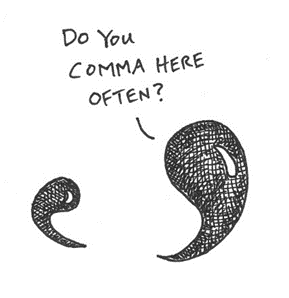Written by Fred Anderson
When drafting legal documents, it is critically important to use correct punctuation, accurate grammar, and proper phrasing. A good example of this rule is a Maine case about overtime pay that hinged on a missing comma. In O’Connor v. Oakhurst Dairy, US Court of Appeals (1st Circuit May, 13, 2017), delivery drivers sued their employers over whether the drivers qualified for overtime pay. The Court found in the drivers’ favor, holding that the employers must pay overtime because certain clauses of Maine’s overtime laws were grammatically ambiguous due to the absence of a comma.
The serial comma, also known as the Oxford comma, is used just before the coordinating conjunction (“and” or “or,” for example) when three or more terms are listed. You will see a serial comma in the first sentence of this article: it’s the comma after “grammar.” Such a serial comma was missing in the language of the Maine law at issue in the O’Connor case. According to that law, the following types of activities were among those that do not qualify for overtime pay:
The canning, processing, preserving, freezing, drying, marketing, storing, packing for shipment or distribution of:
- Agricultural produce;
- Meat and fish products; and
- Perishable foods.
The case rested on the comma-less space between the words “shipment” and “or.” Is packing (for shipment or distribution) a single activity that is exempt from overtime pay? Or are packaging and distribution two different activities, both of which are exempt?
If lawmakers had used a serial comma, it would have been clear that distribution was an overtime-exempt activity on its own. But without the comma, the court held that the law was ambiguous as to whether distribution is a separate activity or whether the whole last clause—“packing for shipment or distribution”—is one activity, meaning only the people who pack the dairy products are exempt. The drivers did distribute, but did not pack, the perishable food.
Given the amount of information available on the web, it is tempting to cut corners by downloading a legal form from the web. Using a do-it-yourself legal website to maneuver legal needs may save time and money in the moment but there is a very good chance that it will cause problems and will end up far more expensive in long run. The smallest omission can invalidate a document, much like the example from the O’Connor case. Knowing what to look for is crucial to avoid penalties and to ensure the language and applicable laws are up to date and applicable to your state of resident. Hiring a lawyer is key to evade a costly mess.
The lawyers here at Shindler, Anderson, Goplerud & Weese draft a lot of documents. We know how to draft and punctuate your documents. Grammar is not a mystery to us, and we will not misplace your commas.





